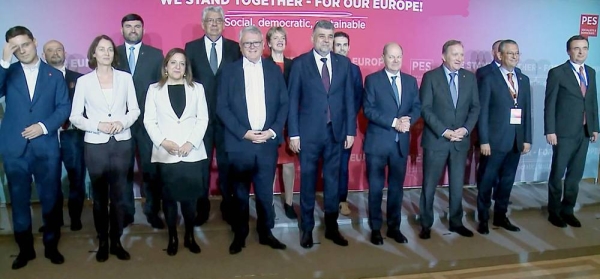
Israel faces an unprecedented repeat election in September after Netanyahu failed to form a majority coalition government following a vote in April
JERUSALEM: A group of religious nationalist parties in Israel announced Monday that they would run together in the upcoming parliamentary elections, the same day four Arab political parties formalized a merger of their own.
The United Right, headed by former Justice Minister Ayelet Shaked, is the third political alliance formed in recent days ahead of this week’s deadline to finalize party lineups for the September 17 vote. It is expected to back Prime Minister Benjamin Netanyahu should he be tasked with forming a government, potentially helping him to secure a fourth consecutive term in office.
Israel faces an unprecedented repeat election in September after Netanyahu failed to form a majority coalition government following a vote in April.
Last week, former Prime Minister Ehud Barak and the left-wing Meretz party joined to form the Democratic Union. They hope to oust Netanyahu, who became Israel’s longest-serving prime minister earlier this month.
Shaked, who assumed the leadership of her New Right party last week, will also head the newly formed United Right, a constellation of religious nationalist parties.
“Weeks of efforts bore fruit today. We united right wing parties for a joint run,” Shaked wrote on Twitter. Her New Right party failed to garner sufficient votes to enter the Knesset, Israel’s parliament, in April’s elections.
The right-wing bloc was announced a day after the Palestinian nationalist Balad party said it would join a reunited Joint List of Arab parties, months after infighting fragmented the political alliance, in order to “increase Arab representation in parliament.”
Ayman Odeh, head of the Hadash party, said Monday that now that the parties have reunited, they can address the “great challenge” facing the country’s Arab minority.
Israel’s Arab population mainly consists of Palestinians who remained in Israel after its creation in 1948 and their descendants, and makes up around a fifth of Israel’s population. They largely identify with the Palestinians and have long complained of discrimination.
Polls published last week projected that the Joint List could become the third largest party in the Knesset, Israel’s parliament, after the September elections.
The four factions first united in 2015, earning 13 seats in the 120-seat Knesset. But infighting later split the Joint List into two parties, which only won a combined 10 seats amid low Arab turnout in April’s election. Around 49% of Arabs cast ballots, down from 64% in the 2015 election.












